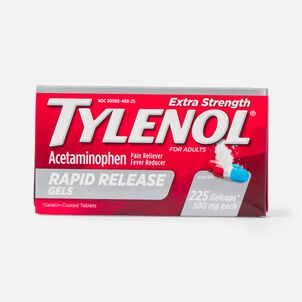Genetic testing and a life-changing discovery (Part 2)

Last time, I shared my experience of being diagnosed with a BRCA1 mutation -- a genetic condition that makes me more susceptible to breast and ovarian cancer. The doctors I spoke with recommended prophylactic surgery to remove my breasts, ovaries and Fallopian tubes.
Until I get the surgeries, I'm supposed to get a blood test, vaginal ultrasound and breast MRI every six months. The cost of these screening tools can be expensive, especially if you have a high-deductible health plan (HDHP) like I currently do. The average cost of an MRI is $2,000, whereas the ultrasound is several hundred dollars. Even the CA-125 blood test can cost $200.
I didn't have to worry about the cost of the procedures immediately. My husband and I somehow qualified for reduced expenses through our medical insurance, so everything from the consultations to the MRIs would be covered for now. But I also knew we had plans to move out of state in a few months, meaning I'd lose that affordable coverage.
Even before I found out my BRCA results, I knew I would want to get the preventative surgeries as soon as possible. I'm an anxious person by nature, so the idea of cancer hanging over my head was enough to give me panic attacks.
Some women are comfortable with surveillance and regular screening, but not me. Every doctor I spoke to recommended surgery as soon as possible since I'm not interested in having kids.
A major life decision
Not all women go that route. Many are scared of having surgery and believe they can detect cancer early enough. That may be true for most breast cancers, but ovarian cancer is different. Symptoms of ovarian cancer are vague and can be confused with PMS or stomach problems. I don't like the idea of freaking out every time I'm bloated or feel discomfort in my abdomen.
Of course my HSA should be there to help. Right now I'm maxing out the family contribution limit of $6,900. We have an HDHP right now, but plan to sign up for a gold plan next year with lower premiums. And it's the right move for us today -- we'll save approximately $4,000 by doing so, but it means we won't be able to contribute to an HSA. That's why I'm planning to save as much as possible this year.
I also won't be able to open an FSA because my husband and I are both self-employed. Currently we are a partnership according to the IRS and plan to transition to an S-corp next year. Neither of those is eligible for an FSA. If I were able to open an FSA, then I would contribute to that account as well to pay for any other outstanding costs that insurance wouldn't cover.
Right now I'm hoping my HSA will have enough money in it to cover the costs of surgery. There might even be some left over in case I need follow-up appointments the year after.
If I wasn't getting surgery next year, I would keep my high-deductible plan and save more money in my HSA to pay for the costs of screening. There are no right answers when it comes to this situation, but approaching the financial side with a level head has helped me to feel more confident for the future.
No one can ever be emotionally prepared for this news, not even someone who's researched so much about breast and ovarian cancer. Some days I still wake up angry at my diagnosis. Some days I think maybe screening is better than surgery. But I always come back to my decision.
Thankfully, the financial aspect of BRCA is easier to swallow. Setting up my budgeting for success means I'll only have to worry about recovery and not how I'm going to pay the hospital bill.
-
Thank you for visiting the FSA Store Learning Center. Don’t forget to follow us for more helpful tips on Facebook, Instagram, and Twitter.
















